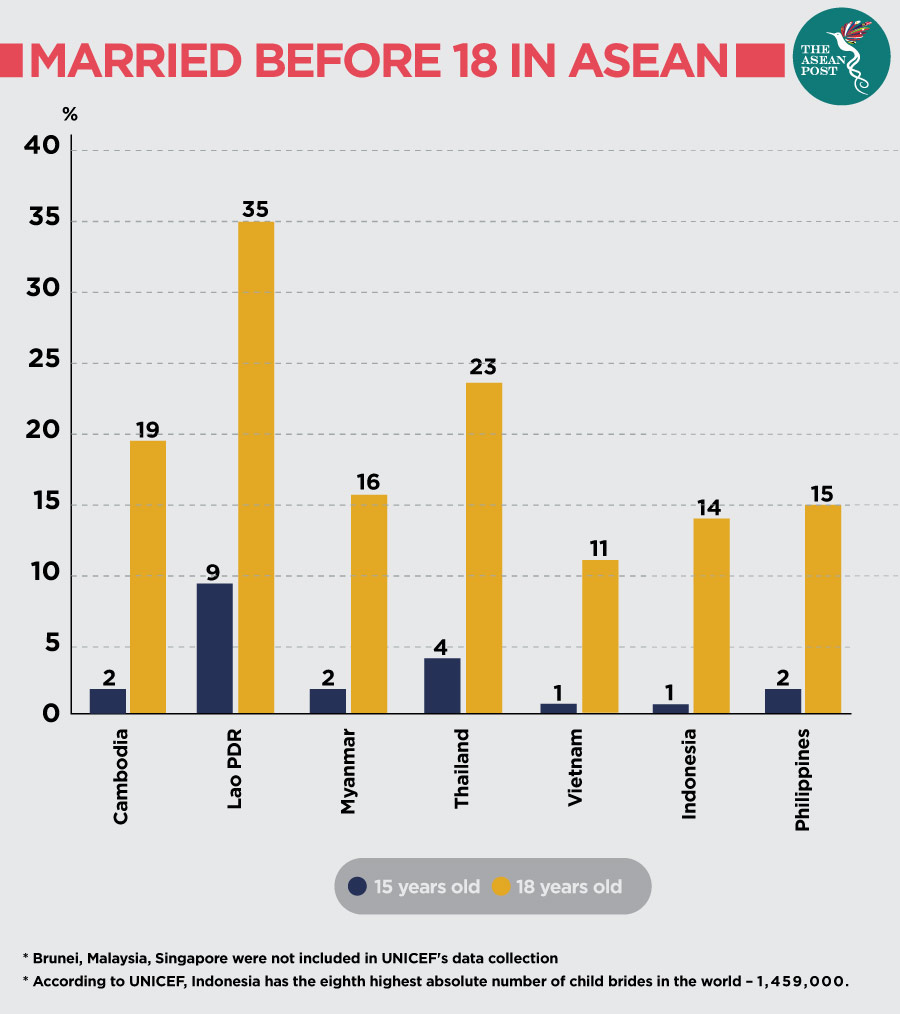Early last month, following years of pressure from advocacy groups, Indonesia's Parliament revised its national laws to increase the legal age a girl can marry. The amendment to the Marriage Act raised the age of marriage for girls to 19 years old which is in line with the legal age for boys, with parental permission, while the legal age for men and women to marry without parental consent is 21. Previously, the legal age of marriage for girls with parental permission was 16 years old.
This is certainly a welcomed move from the Indonesian Parliament; however, some reports have pointed out that it is still not enough. An Indonesian women's rights activist who lobbied for the changes, Naila Zakiah, was quoted as saying that while the new laws are a step in the right direction, they are not enough to stamp out systemic national issues.
It is important to note that while the previous legal age for girls to get married was 16, reports had surfaced that girls as young as 14 were getting married in the Southeast Asian country. This was thanks to a loophole which allows an exception for underage couples if they are given permission by a religious court. Despite the welcomed amendment to the Marriage Act, this loophole still exists.
The changes now allow the courts to hear the child's opinion of whether they are ready to marry whereas, previously, it was purely the parents' decision. However, parents can still file a petition to local and religious courts which can then grant "special circumstances" to bypass the laws and get their underage children married.
ABC News, the news division of the American Broadcasting Company, quoted Naila as saying that religion and cultural practices play a big role in this case, adding that two religious parties rejected the raising of the legal age.
“During the debate in [Indonesia's] constitutional court hearing and in the legislative process, moral and religious arguments were dominant. That's why the clause which still allows parents to marry their kids is still in the law,” she was quoted as saying.
According to 2018 figures from the Indonesian bureau of statistics, one in nine children under the age of 18 are married in Indonesia, or 11.2 percent from a total of 79.6 million children across the country. Meanwhile, according to a 2016 report by the United Nations Children Fund (UNICEF), Indonesia has one of the highest rates of child marriages in the world.
UNICEF has also noted that Indonesia has the eighth highest absolute number of child brides in the world – 1,459,000.

Aside from religious norms, there are many other factors which UNICEF explained places a child at risk of marriage. These include poverty and the perception that marriage will provide protection.
In order to understand how poverty becomes a factor, it would be good to take a look at another ASEAN country, Thailand.
According to the Borgen Project, a United States (US)-based non-profit organisation, arranged marriages are very prevalent in Thailand today where a man from a wealthy family is often chosen because the dowry system is still utilised in the country. The wealthy man will give the bride’s parents money in exchange for her hand in marriage.
“This happens in poor communities in Thailand very often, taking away the possibility for the impoverished girl to receive future education, among other things,” the Borgen Project, states on its official website.
But poverty could also be linked to providing protection. In this case, the child’s parents may feel that the would-be husband would be better able to take care of their child than they themselves could.
In an interview with ABC News, child bride Rasminah, from a village in West Java, said she was first forced to marry after graduating from primary school at just 13 for "economic reasons" – her father had recently become disabled, and her mother had to take care of her three siblings.
"I still remember my mother said to me that I was no longer in primary school now and I should just get married, so someone can make sure I'm fed and bring rice to the table," she was quoted as saying.
Child marriages is a problem prevalent throughout several ASEAN countries, Indonesia only being one of them. The new amendment to the Marriage Act is a welcomed first step but as long as poverty prevails, parents cannot be given the power to ultimately decide whether their children are to be married.
At the same time, it would be unfair to judge parents who marry off their children as those looking to earn a quick buck or find an easy way out. The level of poverty faced by many of those who may even feel as though they are forced to marry off their children is one that many of us are unable to fathom. In the end, a large part of the problem is still very much rooted in poverty.
Related articles:
